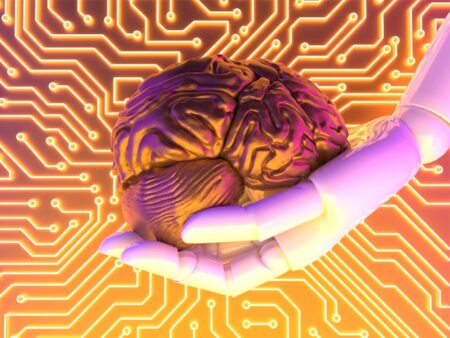 As we gaze into the crystal ball, the future of technology seems to be inextricably tied to the growth of artificial intelligence (AI). AI has already started making its mark across various sectors, such as healthcare, finance, transportation, and retail, to name a few. But, as we set our sights on the next decade, the convergence of AI with technology promises to bring forth unprecedented changes that could redefine our understanding of the world.
As we gaze into the crystal ball, the future of technology seems to be inextricably tied to the growth of artificial intelligence (AI). AI has already started making its mark across various sectors, such as healthcare, finance, transportation, and retail, to name a few. But, as we set our sights on the next decade, the convergence of AI with technology promises to bring forth unprecedented changes that could redefine our understanding of the world.
Accelerating Technological Progress
The pace of technological change is accelerating, powered by the evolution and application of AI. The next decade promises to be an era of ‘intelligent’ technology, which will be driven by AI’s capabilities to analyze, learn, and adapt. In other words, we’re moving from a world where we ‘use’ technology to a world where we ‘interact’ with it.
AI-powered systems are expected to become increasingly autonomous, capable of handling complex tasks without human intervention. For instance, autonomous vehicles, already a reality, are set to become the norm, transforming transportation, logistics, and personal travel. Similarly, in the healthcare sector, AI is set to play a critical role in predictive diagnostics, drug discovery, and personalized medicine.
AI and Big Data: A Powerful Alliance
One of the most significant factors driving AI’s growth is the explosion of data. The proliferation of Internet of Things (IoT) devices, media, digital platforms, and other technological innovations has resulted in the generation of vast amounts of data. AI algorithms thrive on this data, harnessing it to generate valuable insights and enable smarter decision-making.
Big data analytics powered by AI is expected to revolutionize various industries in the next decade. Businesses will be able to make more informed decisions, tailoring their products and services to individual consumer preferences. In healthcare, big data combined with AI could enable the early detection of diseases and the development of more effective treatments. In the realm of climate science, these technologies could help in predicting and mitigating the impacts of climate change.
Quantum Computing and AI: The Quantum Leap
The next decade might also witness a significant leap in computational capabilities with the advent of quantum computing. Quantum computers, by their very nature, are exceptionally good at handling complex computations, the kind that AI algorithms need to function optimally.
As quantum computing becomes more accessible, it could give AI the processing power it needs to unlock new potentials. Complex problems that currently take years to solve could potentially be addressed in seconds. This could have profound implications for areas like cryptography, complex system modeling, drug discovery, and even artificial intelligence itself.
AI Ethics and Regulations
As AI becomes more integrated into our daily lives, questions surrounding ethics and regulations will become increasingly important. Ensuring fairness, transparency, and privacy in AI systems will be a major focus in the next decade.
Moreover, as AI systems become more autonomous, determining accountability in the event of AI failures or mishaps will be a critical challenge. Regulatory bodies worldwide will likely need to work closely with technologists and ethicists to develop comprehensive guidelines and regulations to govern the use of AI.
Closing Thoughts
In the coming decade, the intertwining of technology and AI will likely reshape our world in ways we can only begin to imagine. The promise of autonomous systems, advanced big data analytics, and quantum computing could bring unprecedented advancements in various sectors.
However, as we stand on the brink of this exciting new era, it’s essential to remember that the ultimate goal of these technologies should be to enhance human life. Balancing the rapid pace of AI and technological advancement with ethical considerations and human-centric values will be the key to unlocking a future where technology serves humanity in the best possible way.
Picture Credit: Freepik
